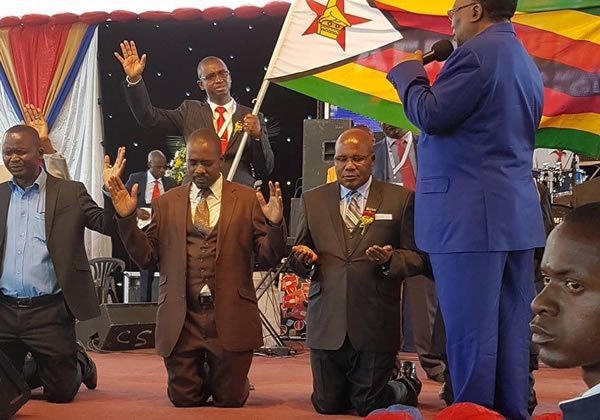BY DIANNA GAMES
THE question doing the rounds in Zimbabwe is how President Robert Mugabe did not know his government had been robbed of billions of dollars in diamond revenues by mining companies even though it had a 50% stake in all of the six mining ventures.
Questions are also being raised about how he did not know about the apparent looting of the country’s resources when his own military and highly placed officials were among those allegedly profiting from the diamonds being mined at the lucrative Chiadzwa diamond fields.
Mugabe said this month that despite presumed revenues of $15bn from the Chiadzwa fields, the government had seen just $2bn. The balance, he inferred, had been stolen. He ordered all mining companies to stop work and leave the mines, saying the state would take over the country’s diamonds to prevent further theft.
Mugabe’s attempted occupation of the moral high ground is ironic, given that the looting of the diamond fields was believed to have been sanctioned by his Zanu (PF) party.
The president seems to be taking no responsibility for allowing a slip of this magnitude.
In 2014, Zimbabwe was listed as the eighth-biggest diamond producer in the world. But the mines have been dogged by controversy since the new diamond fields were discovered in 2006. The state was widely believed to be complicit in the looting of diamonds in fields that were tightly secured by the military, an ally of the ruling party.
Morgan Tsvangirai, opposition leader and former prime minister in a government of national unity with Mugabe until 2013, was stonewalled by the military when he attempted to visit the mines in 2011. When his party colleague, Tendai Biti, then finance minister, alleged that diamond revenues were missing, Zanu-PF accused him of lying.
In 2013, a Zimbabwean parliamentary committee flagged the lack of transparency and accountability in the mines. It also questioned the Mugabe government’s selection of mining companies.
Local media said former mining minister Obert Mpofu, who issued the licences, went on a property buying spree after taking over the portfolio. It was suggested this was linked to the “benefits” of his access to the diamond mines.
These issues have been flagged again in the wake of Mugabe’s move this month effectively to nationalise mines after miners refused to become part of a single organisation that would manage diamond mining, in which the state would have a 50% shareholding.
The mines clean-up appears to be part of a broader effort at reform by the president, who has done a U-turn on many issues, starting with mending relations with the International Monetary Fund (IMF), an organisation he has lambasted frequently over the years. Zimbabwe has been under the IMF Staff Monitored Programme since 2014 and has met the relevant benchmarks.
After meeting with the IMF last week, a raft of reforms was announced by the government that are necessary to secure new loans. They include reviving agriculture and compensating white farmers; cutting the enormous public service wage bill and making parastatals more productive.
These are all measures Zimbabwe’s government has resisted for years. But the ruling party is now in deep trouble, riven by factionalism, and the state’s pantry is bare. These are desperate times.
Zimbabwean commentators have expressed cynicism about the government’s ability, or willingness, to effect these reforms, saying they are about political expedience, not public welfare, and are more about getting funding ahead of the 2018 election than about transformation.
As Zimbabwean commentator Simukai Tinhu said in an article last week: “The party’s ‘genetic code’ makes it incompatible with political reform.”
“Ultimately, Zanu-PF cannot reform because its elite is aware that any attempts at genuine reforms will result in the regime’s collapse.”
• Games is CEO of advisory company Africa @ Work






